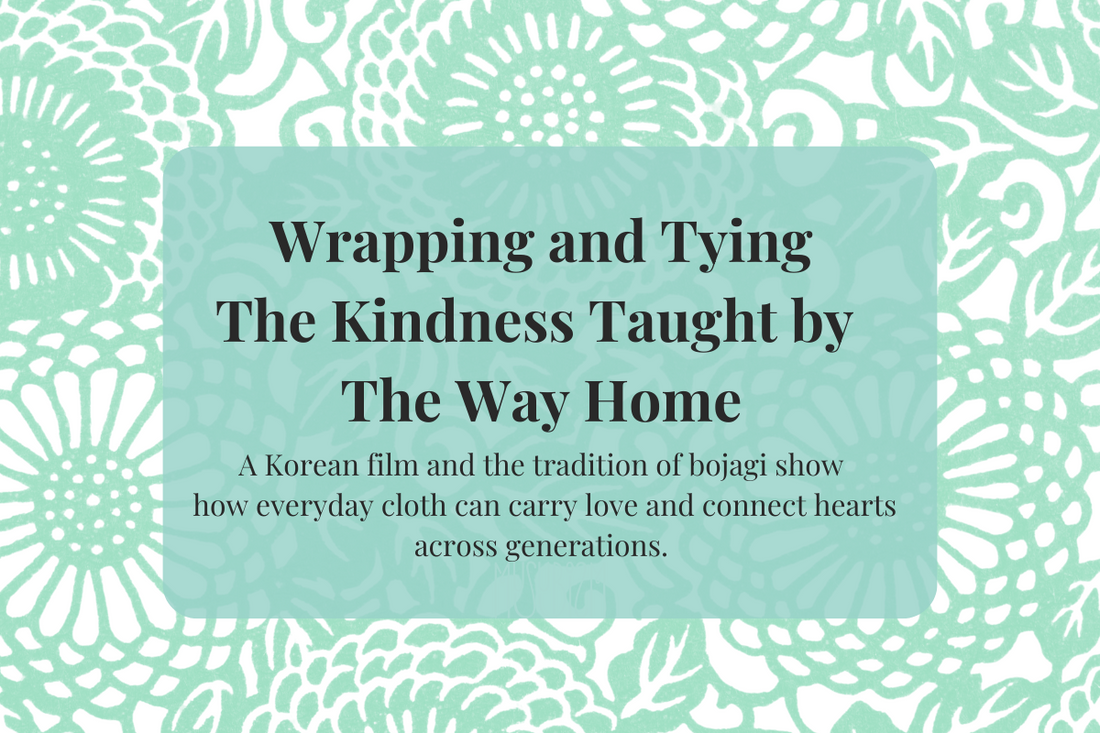
Wrapping and Tying. The Kindness Taught by the Film The Way Home
The Korean film The Way Home (released in 2002) tells the story of a summer spent between a grandmother living in the countryside and her grandson, who has been sent from the city to stay with her. At first, the boy only complains, but little by little, he comes to recognize his grandmother’s kindness and begins to change.
In this film, a traditional Korean wrapping cloth called bojagi appears. The grandmother uses it to carry vegetables to the market, and the boy uses it to cover his hair after a haircut he dislikes. These scenes show how naturally the cloth fits into everyday life.
One of the most moving moments is when the boy goes to meet a girl he likes. The grandmother wraps an old, broken game console in worn paper and hands it to him, saying, “Take this with you.” The boy refuses, saying it’s useless. What he doesn’t know is that she has quietly slipped some money inside. On his way back, hurt and exhausted, he finds the package still in his pocket. When he opens it and discovers the money, he finally realizes the depth of his grandmother’s love and bursts into tears.
This scene shows that wrapping is not only about handing over objects. It is an act of wrapping the heart itself. Hidden feelings are placed inside the cloth and gently passed on. When that kindness reaches the other person, the cloth becomes more than a simple everyday item.
Bojagi is a traditional Korean wrapping cloth, used to wrap gifts, carry goods, and serve many functions in daily life. It is similar to the Japanese furoshiki, though often pieced together from different fabrics and marked by vivid colors and patterns.
As someone who makes furoshiki, I feel that a single piece of cloth already has value when it is simply placed or covered over something. But when it is wrapped and tied, it comes to life and truly serves people. To wrap is to wrap the heart. To tie is to tie hearts together. This is the meaning I see reflected in the film.
Across countries, the feeling of caring for others does not change. Both bojagi and furoshiki support daily life and connect people’s hearts. The Way Home quietly shows us this universal connection.
When you see or hold a furoshiki, if you imagine the feelings it carries, perhaps you too can add a small kindness into your own daily life.
Finally, here is the official trailer of the film. Watching it after reading may leave an even deeper impression.
Source: YouTube “The Way Home (2002) Official Trailer”
